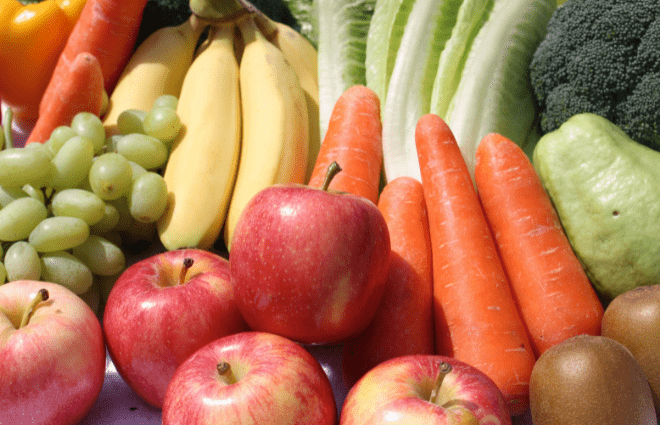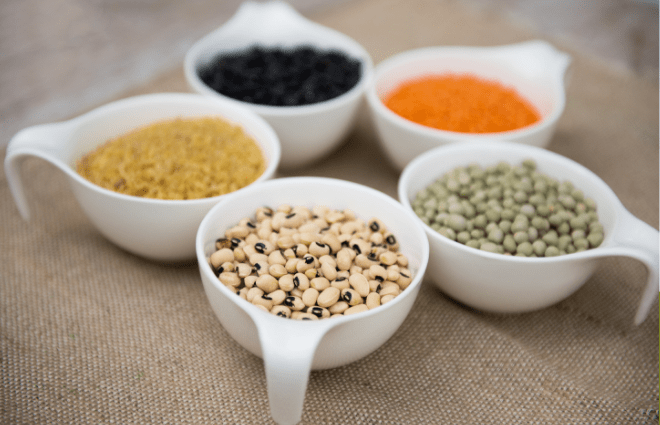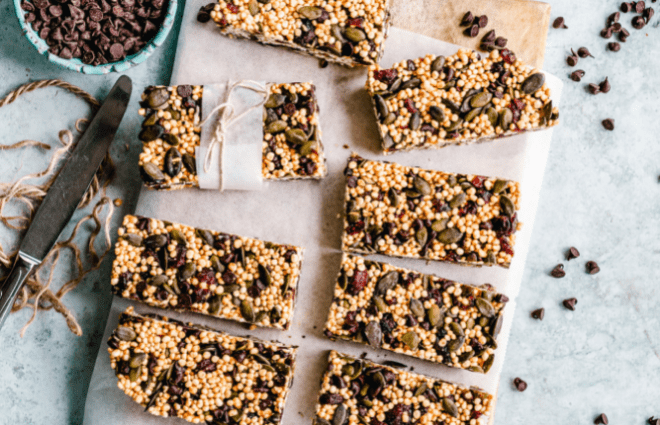[This is a guest post from Andrea De La Flor, at Vegan Fit Guide, how to lose weight effortlessly while on a vegan diet. She shares some great science-backed tips and information for anyone interested in losing weight without consuming animal products.]
Veganism is known for its ethical and environmental benefits, but a vegan diet can also help you achieve your weight loss goals and improve your health.
A vegan diet excludes all animal products like meats, dairy, eggs, and honey, but vegan junk food also exists. This is why it is important to learn the proper way to follow a plant-based diet that can lead to effortless weight loss.
In this guide, you will discover 7 key factors to start a vegan diet that help you achieve your weight loss goals. Let’s get started!
1. Eat High Protein Vegan Foods
Protein is one of the most important nutrients for weight loss since it can boost your metabolism, help reduce appetite and regulate weight-controlling hormones.
And contrary to popular belief, there are plenty of vegan sources which you can get your protein from.
But if you are new to a vegan diet it is important to be intentional and make sure to include high-protein foods in all your meals.
Some of the best sources of vegan protein include tofu, tempeh, seitan, and legumes such as beans and lentils which are great staples to build your meals around.
Additionally, foods like vegetables, nuts, and seeds can also help you increase your protein intake and support your weight loss goals.
2. Avoid Oils and High-Fat Foods
Trends like the Mediterranean and keto diets have given olive and coconut oil a reputation for being weight-loss friendly.
However, they are often highly processed foods that offer low nutrients compared to the high number of calories per serving.
To give you an idea, vegetables typically have around 100 calories per pound, and fruits 300 calories per pound.
Oil, on the other hand, has 4,000 calories per pound.
The same applies to junk and fast food which are usually fried or made with a lot of oil to add flavor to it and help preserve it in a cheap way.
3. Don’t Be Afraid of Fiber
Fiber has many health benefits including being beneficial for weight loss.
Since it takes longer to digest than sugar and simple carbs, fiber is more satiating and keeps you full for longer.
Thus, helping you avoid cravings and stay on track with your diet.

Vegans already eat more fiber than those on a regular American diet but being mindful about your fiber intake can help you lose weight faster, even if that is the only change you make to your diet.
Recently, a study in the Annals of Internal Medicine found that dieters who made sure to get at least 30 grams of fiber a day lost a significant amount of weight, despite being given no other dietary parameters.
Increasing fiber intake is so effective–especially when it comes from vegetables–that this is one of the key weight loss methods in Avocadu’s 21-Day Fat Loss Challenge.
4. Choose the Right Type of Carbs
Carbohydrates (also known as carbs) have long been demonized as weight loss’ worst enemy, but they are actually the most efficient energy source for your body and an essential part of a weight loss diet.
However, not all carbs are made the same…
Whole carbs like grains, tubers, legumes, and vegetables are minimally processed and are full of fiber and nutrients so they keep you satiated while providing sustained energy for your daily tasks and exercise.

On the other hand, processed carbs such as white flour, pastries, sodas, snacks, pasta, sweets, and added sugars have had most of the nutrients and fiber removed.
For this reason, they cause rapid spikes in blood sugar and insulin levels, followed by a drop in blood sugar, that leads to cravings and overeating.
5. Be Cautious of Substitutes
With the huge variety of vegan substitutes for meat and dairy available nowadays, following a plant-based diet is undoubtedly easier than it was 10 or even 5 years ago.
But you must be careful not to assume that just because something is vegan, it is healthy or conducive to your weight loss goals.
Most of these substitutes like burgers and cheeses are highly processed foods, dense in calories, and low in nutrients, so it is best to avoid them or keep them to a minimum.
This doesn’t apply to milk substitutes since they are usually lower in calories than their animal counterparts and provide protein and nutrients like vitamin B12.
Just make sure to choose an unsweetened option like Planet Oat Oatmilk and Silk Organic Unsweetened Soy Milk.
6. Calories Still Matter
The science behind weight loss is simple: When you eat fewer calories than what your body burns on a daily basis, it is “forced” to use fat stores for energy, resulting in a reduction in body fat.
This is true regardless of the type of diet you follow, vegan or not.
So it is important to remember that a plant-based diet is not a magic weight loss recipe and you can still gain weight if you eat more calories than you need.
But if you eat mostly whole foods and avoid processed ones, you will effortlessly create a caloric deficit without worrying about calories and tracking everything you eat.
Not to mention you will get all the nutrients your body needs and feel amazing!
7. Set Yourself Up for Success
Finally, prepare yourself for success by always carrying a healthy vegan snack with you wherever you go, especially as you get used to eating a plant-based diet.
Here are some ideas for some snacks that are easy to bring with you on the go:
- A handful of almonds
- A vegan protein bar
- A veggies and hummus wrap
- A serving of your favorite fruit
- A PB2 and jelly sandwich

While nowadays vegan alternatives are everywhere, you don’t want to risk being in a situation where you are hungry and don’t have any healthy vegan food available.
Frequently Asked Questions
Can a vegan diet make you lose weight?
While veganism is an ethical choice, recent studies show that following a plant-based diet might also help you lose a significant amount of weight. (3)
But not all vegan diets are the same, so if you want to enjoy the health and weight loss benefits of eating plant-based, make sure to choose whole foods and keep processed and junk food to a minimum.
Why am I gaining weight as a vegan?
Putting aside medical conditions (such as insulin resistance and other hormone imbalance), weight gain comes down to one reason only: you are eating more calories than what your body needs for your activity level.
When this happens consistently, excess calories are stored throughout your body as fat.
The best way to avoid consuming too many calories is to avoid processed vegan foods that tend to be higher in calories and low in nutrients.
On the other hand, whole foods are dense in nutrients and low in calories, so eating these foods makes it unlikely that you will eat more calories than you need.
Bottom Line
Following a whole-foods plant-based diet can help you lose weight without worrying about counting calories or tracking everything you eat.
Since plant-based foods are high in nutrients and low in calories, you will not only feel satisfied and energized but you will also enjoy the many health benefits of this lifestyle.
Whether you’re vegan or a carnivore, eating more whole food–especially veggies and fibrous carbs–is one of the main principles of Avocadu’s 21-Day Fat Loss Challenge.
The Challenge comes with step-by-step instructions for all twenty-one days, so there is no guesswork involved.
And don’t worry—you won’t have to count calories, and you don’t even need to exercise to lose up to 21 lbs in just 21 days!
Click here to get started with YOUR 21-Day Fat Loss Challenge today!
And if you loved Andrea’s article on how to lose weight while vegan, please leave us a comment below!
About the Author

Comments
Post a Comment